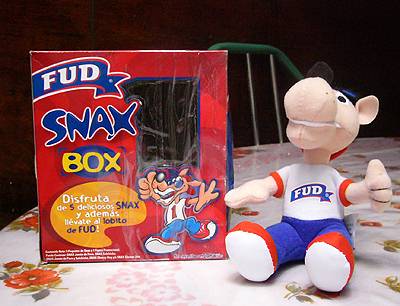FUD pushing back hard against Google WebM


(As with the word Spam, the acronym FUD also appears on quality meat products. It's a Spanish acronym meaning refined, unique and delicious.Expect kids to be carrying FUD snack packs to Silicon Valley schools this fall.)
The most important attack may be a fisking of Google's claims by Jason Garrett-Glaser, the primary x264 developer. His summary is that WebM (formerly called VP8) isn't that good a codec, but here's the nut graph:
VP8 copies way too much from H.264 for anyone sane to be comfortable with it, no matter whose word is behind the claim of being patent-free. This doesn’t mean that it’s sure to be covered by patents, but until Google can give us evidence as to why it isn’t, I would be cautious.
That was enough for MPEG LA CEO Larry Horn to lay it on thick for The Wall Street Journal. He's planning on creating the same kind of "patent pool" for WebM that binds H.264 to Hollywood and forces everyone to pay royalties forever on what may be old technology.
Google is plowing straight ahead, but former Sun open source guru Simon Phipps says they haven't done their open source homework, either.
The WebM license is non-standard, he writes, with a "field of use" restriction (this license only covers this software) that's not in the OSI playbook. It's similar to the Apache 2.0 license, but it's not the same.
Those patent problems Garrett-Glaser points to may be all the excuse Apple needs to stay far away from WebM, Phipps writes. When patent trolls attack with a good case, they go for the deepest pockets, and Apple is now worth $70 billion more than Google itself.
Then there's patent attorney Rob Glidden, former TV and media alliance director at Sun, now independent.
At his blog he questions whether Google's move is good for the open Web at all.
leaving VP8 code out in the open with nothing but a mutual non-assert license leaves the patent issue not only unaddressed, but up for capture by those with uncharitable agendas, and on their turf and time frame
The beauty of a "patent pool" is that members of the pool wrap up their claims in non-disclosure agreements, meaning outsiders never get to know who is claiming what, and for how much.
A better move, Glidden suggests, would be to hand the codec over to a standards group with a strong patents disclosure policy. My first thought is the World Wide Web Consortium itself might be a candidate, but I don't think they would want the legal risk.
Google claims to have done its homework, Glidden concludes, and now needs to show its work.
It's going to be a long week at the Googleplex.